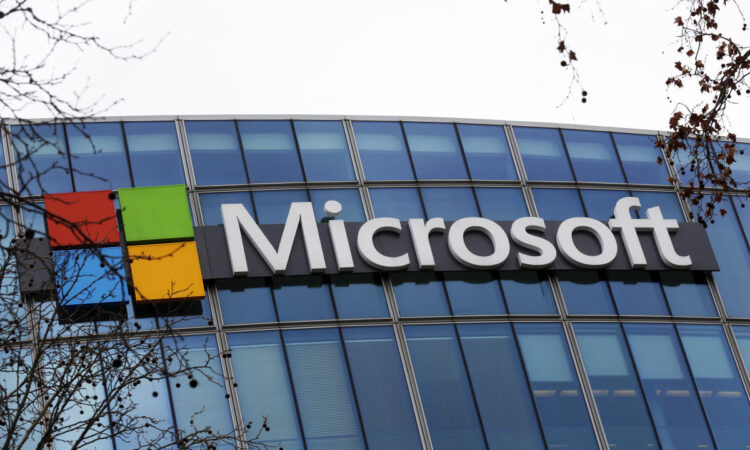
Europe’s antitrust regulator approved Microsoft’s (MSFT) $74.5 billion deal to acquire “Call of Duty” maker Activision Blizzard (ATVI) Monday, complicating the path forward for the tie-up weeks after regulators in the United Kingdom rejected the same plan.
Activision stock was up 1% in morning trading following the decision, while Microsoft was roughly flat.
An acquisition of Activision Blizzard would catapult Microsoft into the position of the third-largest gaming company in the world by revenue, after Tencent and Sony.
The European Union’s antitrust regulator, the European Commission, said in a press release Monday that its approval is conditional on Microsoft’s full compliance with agreements to enter long-term licensing agreements that permit gaming consumers to continue accessing Activision’s games, including “Call of Duty.”
The commission said although it concluded Microsoft’s acquisition of the gaming giant would not threaten the market for gaming consoles and rival multi-game subscription services, it did find the deal could threaten competition in the market for distribution of games through cloud streaming services, and the market for PC operating systems.
“Despite its potential, cloud game streaming is very limited today,” the EC said in its press release. “If Microsoft made Activision’s games exclusive to its own cloud game streaming service, Microsoft could also strengthen the position of Windows in the market for PC operating systems.”
The commission’s approval requires Microsoft to offer a 10-year, comprehensive licensing agreement to consumers in the European Economic Area that allows them to stream all current and future Activision Blizzard PC and console games for which they hold a license, using any cloud game streaming service of their choice.
Microsoft must also offer a corresponding free license to cloud game streaming service providers to provide Activision’s PC and console games.
Microsoft Vice Chair and President Brad Smith said “the European Commission has required Microsoft to license popular Activision Blizzard games automatically to competing cloud gaming services. This will apply globally and will empower millions of consumers worldwide to play these games on any device they choose.”
Other hurdles in the UK and US
The EU approval clashes with the UK’s Competition and Markets Authority (CMA) that in April ruled to block the acquisition, saying the deal threatens to “alter the future of the fast-growing cloud gaming market” in a way that could lead to “reduced innovation and less choice for UK gamers over the years to come.”
Separately, the US Federal Trade Commission (FTC) — which sued to block the move — continues to evaluate the deal.
In a statement to Yahoo Finance, Activision Blizzard’s spokesperson said, “The EC conducted an extremely thorough, deliberate process to gain a comprehensive understanding of gaming. As a result, they approved our merger with Microsoft, although they required stringent remedies to ensure robust competition in our rapidly growing industry.”
Smith has said the company plans to appeal the CMA’s decision.
“We have already signed contracts to make Activision Blizzard’s popular games available on 150 million more devices, and we remain committed to reinforcing these agreements through regulatory remedies,” Smith said in an earlier statement sent to Yahoo Finance.
“We’re especially disappointed that after lengthy deliberations, this decision appears to reflect a flawed understanding of this market and the way the relevant cloud technology actually works.”
Smith has argued that Microsoft’s already completed partnerships with gaming market players — including Nintendo, Steam, NVIDIA, Boosteroid, Ubitus and EE — serve as proof of Microsoft’s commitment to diverse access to gaming.
Activision, for its part, said it, too, would appeal the decision and threatened to pull back on its investment in the UK. A spokesperson for the company also accused the CMA of contradicting the UK’s ambitions to become an attractive country for technology-building businesses.
“The report’s conclusions are a disservice to UK citizens, who face increasingly dire economic prospects. We will reassess our growth plans for the UK. Global innovators large and small will take note that — despite all its rhetoric — the UK is clearly closed for business,” the company said in an earlier statement.

An eye on Sony
Microsoft is eyeing the deal as an opportunity to solidify dominance in the gaming industry and further eclipse Sony in the still-nascent cloud-gaming industry, estimated by data firm Newzoo to jump to $8.1 billion in 2025 from $2.4 billion in revenue in 2022.
Cloud gaming allows gamers to play titles that would normally require high-powered consoles and PCs on low-powered devices including smart TVs, smartphones, tablets, laptops, and Chromebooks.
The latest title in the franchise, “Call of Duty: Modern Warfare 2,” topped $1 billion in sales over its first 10 days on the market. Cutting out Sony would mean eating into “Call of Duty’s” sales.
A central concern for US regulators is that Microsoft’s ownership of Activision’s “Call of Duty” franchise “would enable Microsoft to suppress competitors to its Xbox gaming consoles and its rapidly growing subscription content and cloud-gaming business.”
Microsoft has countered those concerns through an offer to keep the popular game available to Sony’s PlayStation for 10 years. It reached similar agreements with Nintendo and Nvidia.
However, the FTC has accused Microsoft of backtracking on a similar, prior assurance in another tie-up with content developer Zenimax. Microsoft promised but failed to keep Zenimax products available on third-party platforms after it acquired the developer for $7.5 billion in 2021.
The FTC has also expressed concerns that Microsoft is one of only two high-performance console makers.
It’s not just cloud gaming and “Call of Duty,” though.
Microsoft would also stand to benefit from Activision Blizzard’s mobile-focused King business. Mobile is the fastest-growing gaming segment thanks to the ubiquity of smartphones.
And that’s important when trying to reach consumers in developing countries. After all, while consumers in those regions might not be able to afford pricy PCs and consoles, they can get their hands on low-cost smartphones.
Click here for the latest stock market news and in-depth analysis, including events that move stocks
Read the latest financial and business news from Yahoo Finance
Alexis Keenan is a legal reporter for Yahoo Finance. Follow Alexis on Twitter @alexiskweed.
By Daniel Howley, tech editor at Yahoo Finance. Follow him @DanielHowley.






